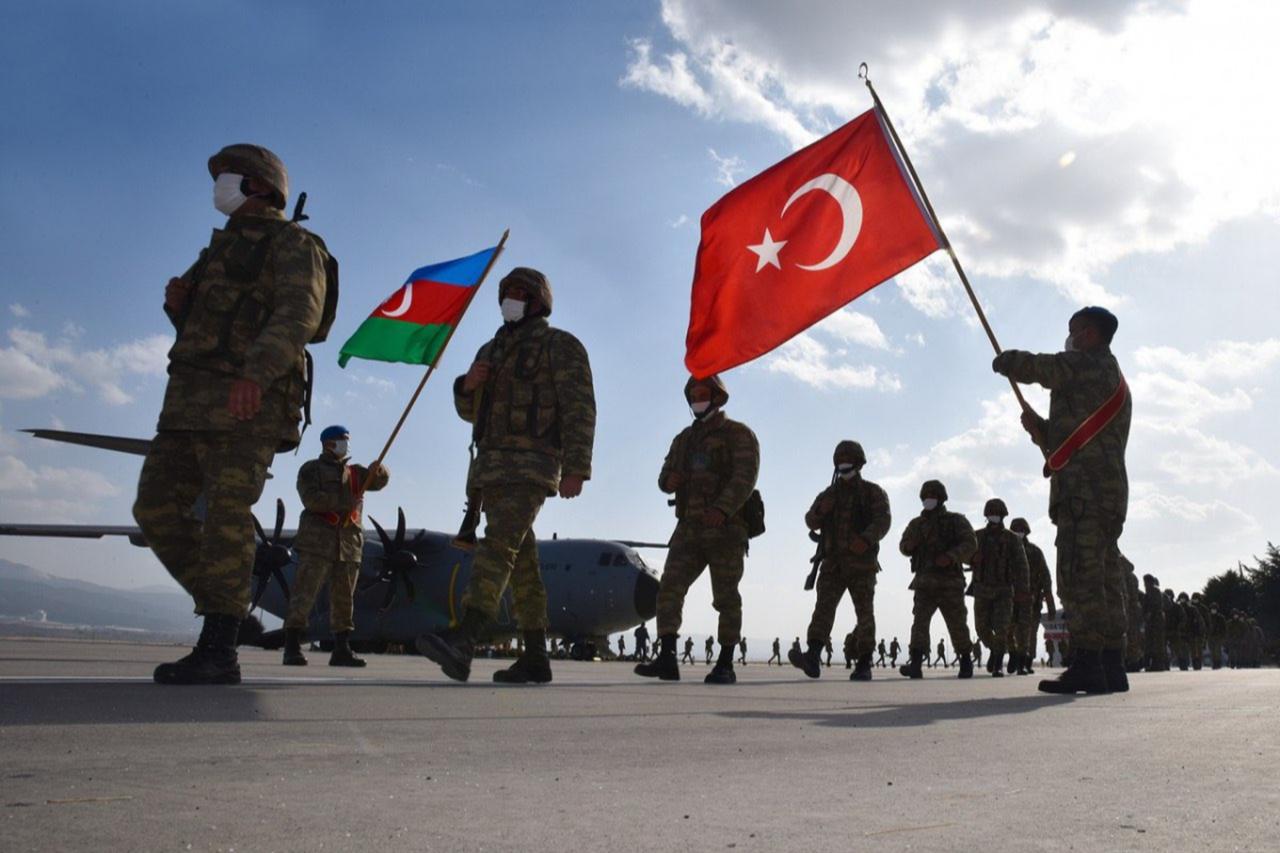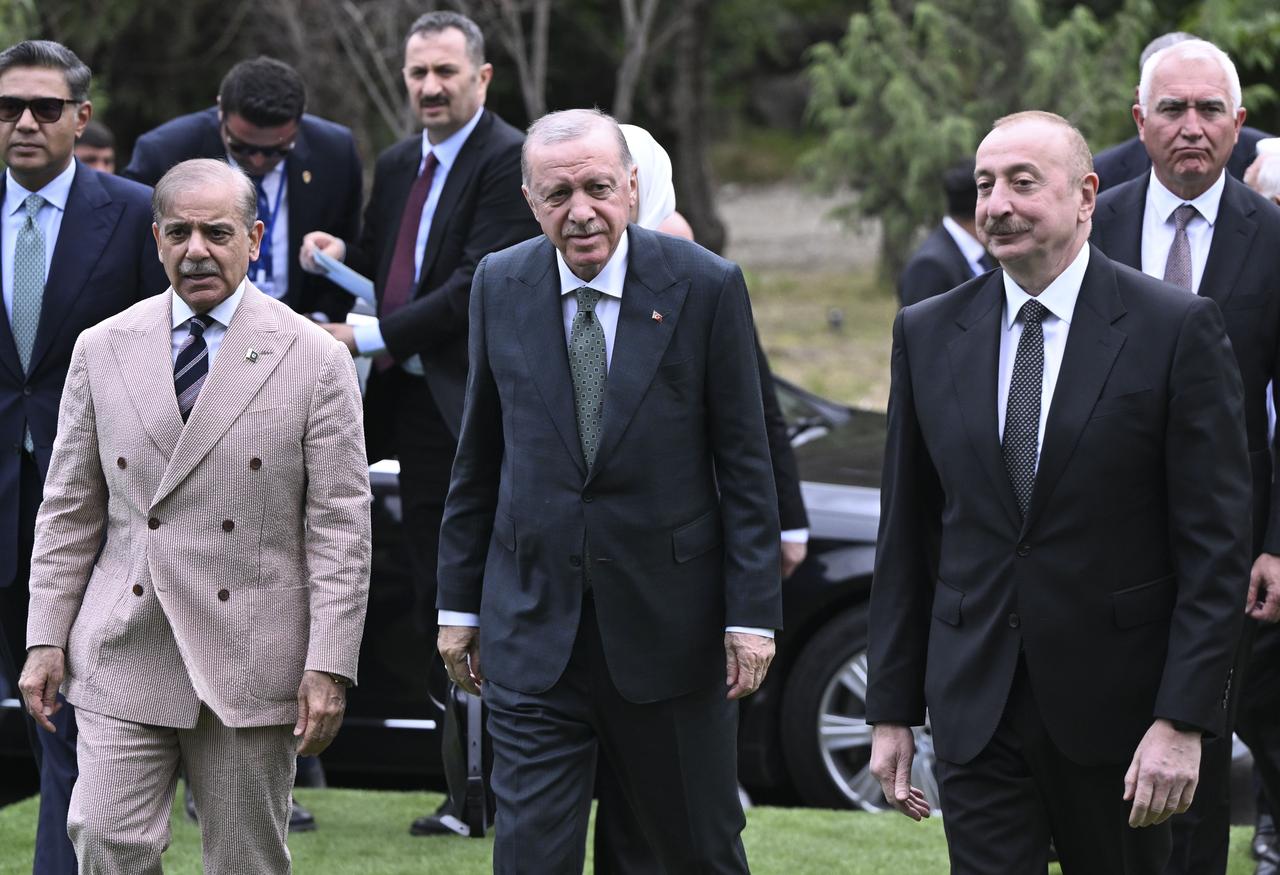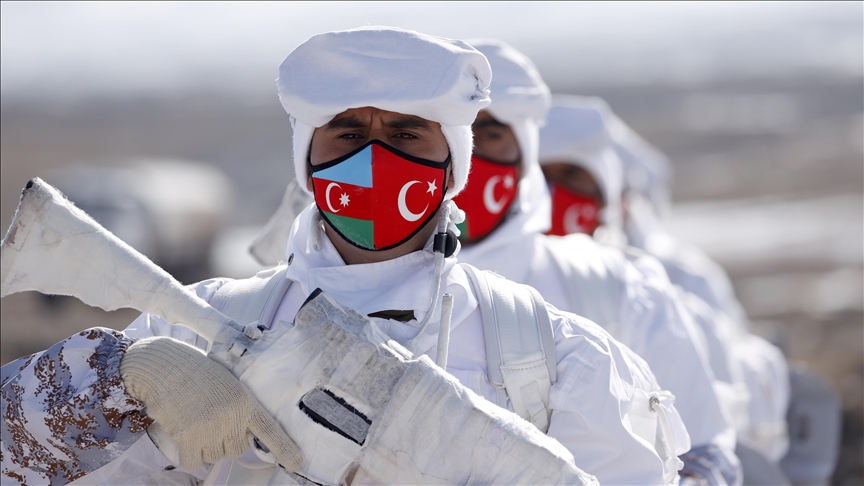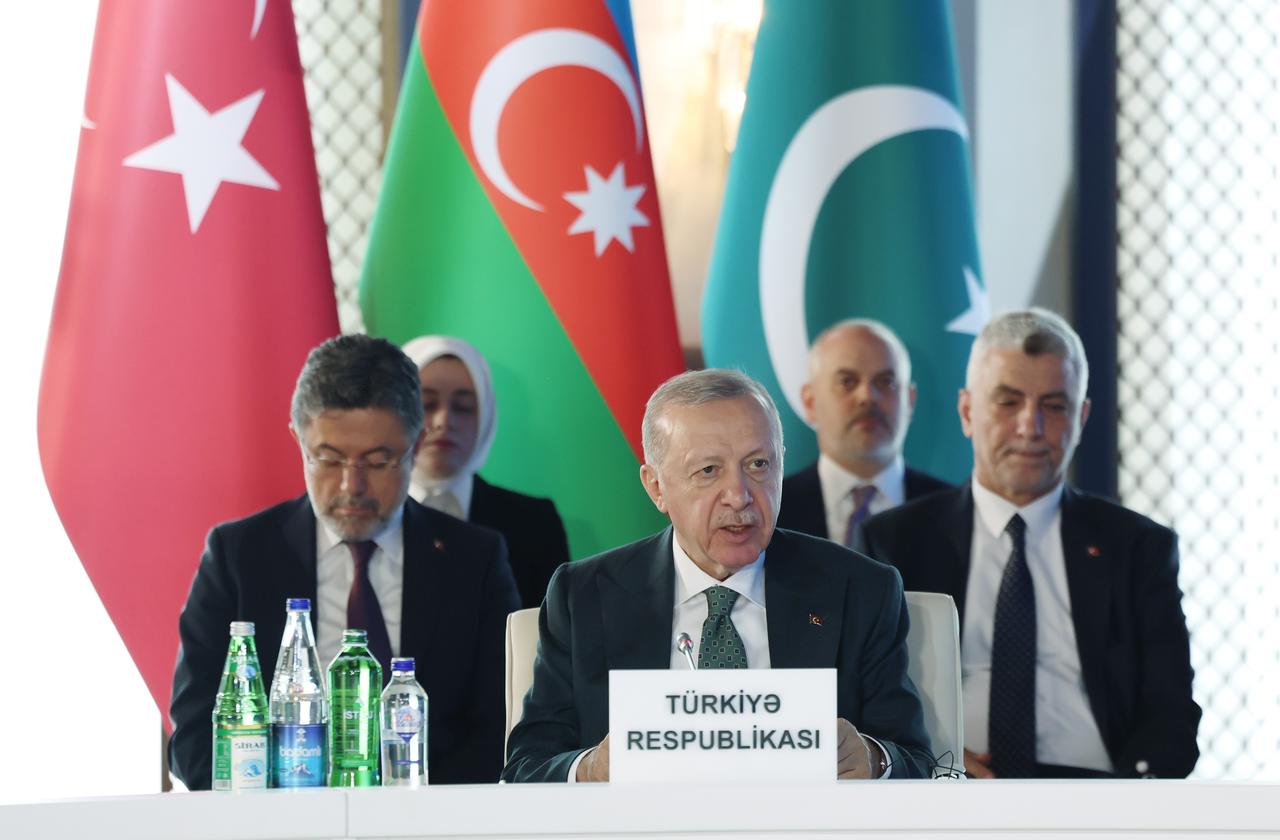
Azerbaijan’s simmering diplomatic freefall with Russia took a turn earlier on Wednesday after Eldar Namazov, former head of the presidential administration under Heydar Aliyev, publicly called for the establishment of a Turkish military base in Azerbaijan.
Speaking to local media on Wednesday, Namazov argued that Baku faces growing pressure from both Russia and Iran, powers he characterized as posing a direct threat to Azerbaijan’s sovereignty. The remarks came just hours after Russia’s Foreign Ministry issued a rare public warning, denouncing what it described as efforts to undermine its “strategically important” relationship with Baku.
The escalating rhetoric follows the June 27 deaths of two Azerbaijani nationals in a Russian police raid in Yekaterinburg—an operation Baku has condemned as an ethnically motivated extrajudicial killing. Russian authorities deny any wrongdoing, but the incident has triggered a cascade of retaliatory moves from Azerbaijan, including arrests of Russian citizens, suspension of bilateral cultural exchanges, and the closure of Russian media offices in Baku.
While Moscow has sought to contain the fallout, the diplomatic rift is now morphing into a broader strategic reckoning—one that is bringing long-standing debates about foreign military infrastructure back into public view.
Over the past four years, similar reports have surfaced at least once annually, only to be publicly denied—most recently by President Ilham Aliyev himself, who six months ago called such speculation unnecessary and politically motivated. But with geopolitical dynamics rapidly shifting, particularly amid a sharp downturn in Baku-Moscow relations, what was once dismissed as rumor may now be gaining new relevance—at least as a signal of intent.

Namazov’s proposal is both pointed and deliberate. “A decision should be made to deploy the largest Turkish military base in the region, in Azerbaijan, in the near future,” he said. “For neighbors who do not understand, part of this base would be enough to serve a population of 250 million. It could even be leased to our other ally, the Pakistani Air Force, which possesses nuclear weapons.”
The suggestion—although not official policy—reflects a mood shift in Azerbaijan’s strategic community, where a growing number of voices are calling for Ankara to play a more visible security role in the South Caucasus. The idea of a permanent Turkish base has periodically surfaced in Azerbaijani and Turkish media over the past decade, but each time it has been walked back by officials in both capitals as speculative or unnecessary.
This time, however, the context is different. Azerbaijan is in open confrontation with Moscow, Türkiye’s role in the region has grown markedly since the 2020 Nagorno-Karabakh war, and Iran remains at odds with Baku over transport corridors and Israel-Azerbaijan defense ties.
Despite the renewed speculation, Aliyev has once again rejected the idea of a permanent Turkish military installation on Azerbaijani soil. In a December 2024 interview with Russian state outlets RIA Novosti—given before the latest diplomatic breakdown—Aliyev dismissed such reports as “political speculation” and “information pollution,” stating unequivocally: “There is no need for this.”
He pointed to the 2021 Shusha Declaration, signed between Türkiye and Azerbaijan, which includes provisions for mutual military assistance in the event of external aggression. “That clause is sufficient,” Aliyev said. “It makes the creation of permanent military infrastructure completely unnecessary.”
The Azerbaijani president also noted that in today’s environment, hiding such a facility would be practically impossible, given global satellite surveillance and the level of international scrutiny.

Moscow’s concerns, however, remain unchanged. The possibility of Turkish or NATO-linked military infrastructure in the South Caucasus has long been viewed by the Kremlin as a red line. In 2021, Kremlin spokesperson Dmitry Peskov warned that any effort by Türkiye to establish a base in Azerbaijan would trigger “special concern” and necessitate “steps to ensure national security.”
Analysts say that concern is particularly acute given Türkiye’s NATO membership and its increasingly assertive foreign policy under President Recep Tayyip Erdogan, including growing military footprints in Syria, Iraq, Libya, and the Caucasus.
“If such a move were ever formalized, it would not only redraw the regional security map, but also escalate tensions with Russia to an entirely new level,” said one European diplomat familiar with regional security dynamics.

While there is no evidence that Ankara is pushing for a permanent military presence in Azerbaijan, its influence in the country is undeniable. Turkish military advisors have worked closely with Azerbaijani forces since the 2020 war, and joint exercises have become routine. Ankara’s defense industry, including drone sales and technology transfers, has become a key pillar of Azerbaijan’s post-war military modernization.
At the diplomatic level, Erdogan has served as a quiet but persistent mediator in normalization talks between Baku and Yerevan. His recent hosting of Armenian Prime Minister Nikol Pashinian in Istanbul—the first such visit by an Armenian leader since the Cold War—was a signal that Türkiye sees itself as a central power broker in the region, potentially displacing Russia from its traditional role.

The speculation over a Turkish base is part of a larger strategic realignment that has accelerated since Russia’s invasion of Ukraine. While Baku has not joined Western sanctions or anti-Russian platforms, it has deepened its ties with countries outside Moscow’s sphere of influence—including Türkiye, Pakistan, Israel, and more recently, China.
Speaking to Türkiye Today, Andrew D’Anieri, a resident fellow at the Atlantic Council’s Eurasia Center, remarked on the pace and breadth of the fallout: “The key fundamentals of strategic ties between the two countries are highly unlikely to change. For all his country’s well-founded grievances against Russian abuses and negligence, President Aliyev remains hyper-pragmatic and will not allow this episode to disrupt the foundation of his country’s ties with Russia. The breadth of the relationship might contract (around cultural exchange, educational diffusion, and tourism ties) but energy sales and strategic relations are highly likely to remain in place.”
At present, it seems Moscow needs Azerbaijan more than Azerbaijan needs Moscow—giving Baku greater leverage to escalate tensions further.
Calls for a Turkish military base in Azerbaijan are not new, and they have never translated into policy. But in the context of the current diplomatic rupture between Baku and Moscow, the conversation carries new symbolic weight.
For Azerbaijan, invoking the prospect of a deeper Turkish military presence sends a message—both to Russia and to Iran, that it has options. For Moscow, the base debate underscores a more troubling reality: a former ally may no longer be reliably within its sphere of influence.
Whether a base materializes or not, the geopolitical center of gravity in the South Caucasus is shifting, and both Ankara and Baku are making it clear that they intend to shape that shift on their own terms.